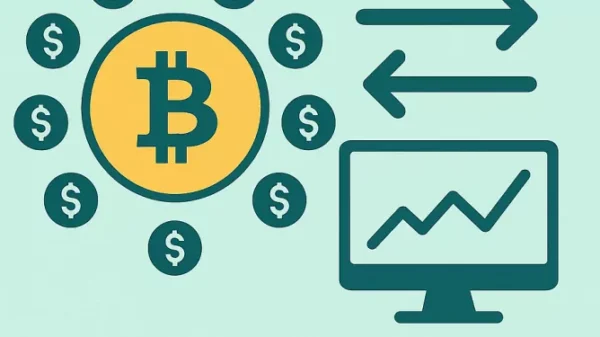Owning a car can make a significant difference in the lives of individuals and families. It provides reliable transportation, access to healthcare and employment opportunities, and independence. Unfortunately, not everyone can afford a car. For those in need, car donation programs offer a solution. This article explains how to qualify for a free car and how to find car donation programs that offer them.
Importance of Owning a Car in Today’s Society:
In today’s society, owning a car is essential. It provides access to jobs, education, and healthcare. It also enables individuals and families to participate in community activities and maintain their social connections. Without a car, individuals can become isolated and unable to meet their basic needs.
Brief History of Car Donation Programs:
Car donation programs have been around since the 1990s. They were created to help low-income individuals and families acquire reliable transportation. Since then, car donation programs have grown in popularity and have helped thousands of people across the country.
How to Qualify for a Free Car:
Eligibility criteria for car donation programs vary depending on the organization. However, some common requirements include:
- You must have a valid driver’s license.
- You must be at least 18 years old.
- You must have a steady income or receive government assistance.
- You must have a clean driving record.
- You must not have any outstanding debts related to a previous vehicle.
Documents required for the application process may include proof of income, proof of residency, and a valid driver’s license.
Finding Free Car Donation Programs:
There are several organizations that offer free car donations. These include charities, non-profit organizations, and government agencies. Researching organizations that provide free cars is essential. It is also important to understand the application process for each organization.
Applying for a Free Car:
The application process for a free car varies depending on the organization. However, some common steps include:
- Researching and selecting an organization that provides free cars.
- Filling out the application form and submitting all necessary documents.
- Waiting for the organization to review and process the application.
- If approved, working with the organization to select a car and complete the necessary paperwork.
Tips for a Successful Application Process:
To increase the chances of a successful application, it is essential to follow the instructions carefully and provide all necessary documents. It is also important to be patient and persistent throughout the process.
- Be prepared for the ongoing costs of car ownership: While receiving a free car can be a great relief, it is important to remember that owning a car comes with ongoing expenses such as gas, maintenance, and repairs. Be prepared for these costs so that you can continue to use the car without interruption.
- Consider volunteering or donating to car donation programs: If you have a car that you no longer need, consider donating it to a car donation program. Alternatively, you can volunteer with these organizations to help those in need access reliable transportation.
- Look for local car donation programs: Some car donation programs operate at a national level, while others are specific to certain regions or communities. Look for local car donation programs that may have more specific eligibility criteria or requirements that you can meet.
- Check with your local government: Some cities or states have programs that provide low-cost or free cars to eligible residents. Check with your local government to see if these programs exist in your area.
- Spread the word: If you have received a free car through a donation program, consider spreading the word to others who may be in need. By sharing your experience, you may be able to help others access reliable transportation and improve their quality of life
What to Expect After Receiving a Free Car:
After receiving a free car, there are several expectations and responsibilities to consider. These include ongoing maintenance and upkeep, insurance and registration requirements, and other costs associated with car ownership.
Understanding the Selection Process for Free Car Donation Programs
Getting a car can be a life-changing experience, especially for individuals who may not have the financial means to purchase one. Luckily, there are car donation programs that offer free vehicles to those in need. However, the process of receiving a free car can vary depending on the program you choose.
The selection process typically involves an application that requires you to provide information about your financial situation, employment status, and why you need a Free car. Some programs may also require a background check or a credit check. After submitting your application, you may need to attend an interview or provide additional documentation.
What to Expect After Receiving a Free Car
If you’re lucky enough to receive a free car, it’s important to understand what to expect post-delivery. Firstly, make sure to express gratitude to the organisation that provided the vehicle. Secondly, it’s important to take care of your car, especially if it’s a used vehicle. Here are some tips for ongoing maintenance and upkeep:
- Regular oil changes and other routine maintenance tasks
- Keeping the car clean and tidy
- Checking tire pressure and brakes regularly
- Keeping up with any necessary repairs
Insurance and registration requirements are also important to keep in mind. Make sure to obtain the necessary insurance coverage and register the car with the DMV in your state.
Benefits of Owning a Car
Owning a car can have a significant positive impact on your life, especially if you previously had limited access to transportation. Here are some benefits you can expect:
- Improved access to healthcare and employment opportunities
- Improved quality of life and independence
- Reduction in transportation-related stress and expenses
In conclusion, owning a car can make a significant difference in the lives of individuals and families. Unfortunately, not everyone can afford a car. For those in need, car donation programs offer a solution. By understanding the eligibility criteria, researching organizations that provide free cars, and following the application process carefully, individuals and families can increase their chances of receiving a free car.
Car donation programs have been around for several decades, and they continue to grow in popularity. These programs have helped thousands of people across the country, providing reliable transportation, access to healthcare and employment opportunities, and independence. By donating a car, individuals and organizations can make a positive impact on someone’s life.
We encourage everyone to explore car donation options for those in need. If you or someone you know is struggling to afford a car, take the time to research and apply for a free car donation program. With patience and persistence, owning a car can become a reality, leading to a better quality of life and increased opportunities for success.




























































